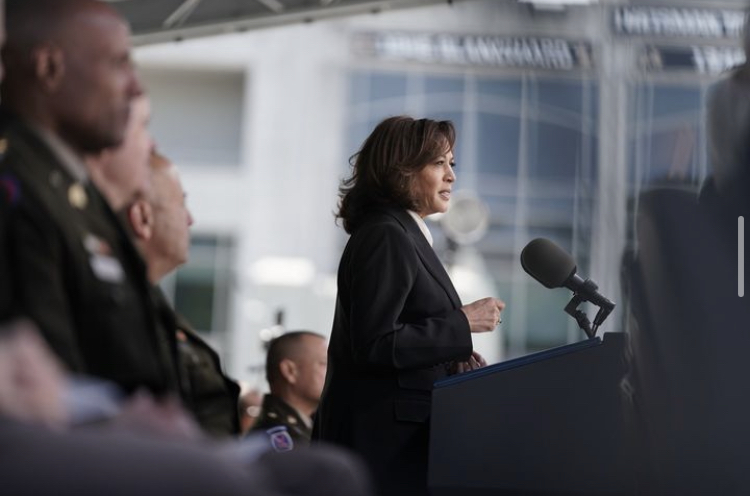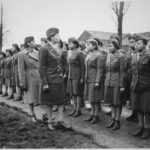
Vice President Kamala Harris made history on Saturday when she became the first woman to deliver a commencement address to graduates of the U.S. Military Academy in West Point, New York.
In her opening remarks, Harris made note of the 75th anniversary of women’s integration into the military, calling the milestone a reminder that “our military is strongest when it fully reflects the people of America.”
Traditionally, commencement addresses at U.S. military academies are delivered by either the president, vice president or a high-ranking military official. This means that before Harris was elected as the country’s first woman vice president in 2020, the majority of commencement speakers at military academies were men. She previously made history in 2021 as the first woman to deliver a commencement address to U.S. Naval Academy graduates.
While issues such as terrorism threats served as cornerstones of her 2021 address, she made it clear in her speech on Saturday that a further shift in global politics has created even more obstacles for the U.S. military, from Russian aggression in Ukraine to security concerns from China. “It is clear you graduate into an increasingly unsettled world where longstanding principles are at risk,” she told the roughly 950 graduates at West Point.
She called on the new cadets to experiment with new technologies in response to these threats. “Advancements made by our military have not only strengthened our national security; they have helped to improve everyday life for people across the world,” she said. “As I look out at you, I know that you will build on that leadership. Because of course,” – she cracked a smile – “your generation grew up online.”
She cited examples of new technology she anticipates will become pillars of military intelligence, including AI to predict the movements of our opposition, autonomous vehicles to support and supply troops, and even virtual reality to train new soldiers.
“As I think about the future of our military, I am particularly optimistic because of you,” she told cadets. “Because I know you will make sure that as the character of warfare changes, no nation will match the power of America’s military.”



